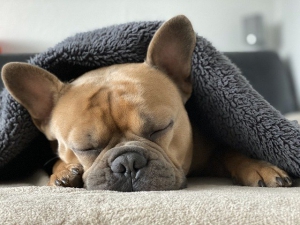
“Sleep is the golden chain that binds health and our bodies together” — Thomas Dekker.
Having good quality sleep provides us with many benefits in our waking life. Below are six steps to a better nights sleep.
As Joe Leech explains in his blog ’10 Reasons why sleep in important’ it improves productivity and concentration, improves your immune function, increases your resilience and your ability for social interaction. Poor sleep can be linked to weight gain, depression and other illnesses.
Thankfully there are a number of practical things you can do to help get a better nights sleep.
Food and Drink
Avoid eating heavy meals just before bed as this increases the likelihood of certain aliments like heartburn, insomnia and digestive issues, as well as encouraging weight gain. As well as this, it can be beneficial to limit caffeine to morning or early afternoon to improve the chances of a more restful night’s sleep. This is because caffeine makes us feel more alert by blocking sleep-inducing chemicals in the brain and increasing adrenaline. Click here to find out more.
Establish a routine to wind down before sleep
Your brain loves routine and will respond positively to a set night time habit, helping you to fall asleep quicker. “Doing the same thing repeatedly brings structure to our lives and creates a feeling of safety and comfort.” Brandon R. Peters, MD
Everyone is unique so it important to choose a night time routine that works for you. This could involve light stretching, reading, or having a bath to help wind down. There are also a number of different herbal teas available that help to relax and get you ready for some restful slumber.
Manage your stress
Journaling can be a great outlet for any thoughts whizzing around your head. Taking some time to meditate or listening to a deep relaxation download is a great way to create some mental headspace and manage stress levels, getting yourself into a more positive mindset before going to sleep.
Develop a sleep schedule and ease yourself into it
If you have decided you want to go to bed at 10pm each night but you currently see the wee hours of the morning, the change is achievable but be aware that the transition won’t happen overnight. The best way to achieve this is to reduce your bedtime by 15mins for 4-5 nights then reduce again. Over the course of a few weeks you should be getting to sleep at your desired time.
Use lighting to your advantage
Pulling the curtains or the blinds up as soon as your alarm goes off can help to wake you up, due to the fact that natural light alerts our internal body clock that it’s time to wake up and makes us more alert.
Dimming the lights at night also signals to your body clock that it’s time to go to bed, and starts to produce the hormone melatonin – also known as the sleep hormone. Frances Hennessey describes in his blog ‘Sleep and Light Exposure’ how artificial light at night interferes with the production of melatonin, disrupting our circadian rhythms that regulate physiological, cognitive, and behavioural changes in our body. If you struggle to put your phone down just before bed it can be useful to change to a night time setting or using a browser like koala browser as these restrict the amount of blue light being emitted which is the major culprit in suppressing the production of melatonin.
Avoid the snooze button
In an article in the Daily Mail , independent sleep expert Dr Neil Stanley explains how it takes a lot of energy to snap in and out of a deep sleep. Before we wake our body goes into a preparation hour where sleep becomes lighter which helps us to wake up. However if your alarm wakes you from a deep sleep your natural reaction might be to hit the snooze as you still feel tired. This will likely take you back into a deep sleep and as your body is not supposed to wake up from this state it takes a large amount of energy to do so, which creates a shock to your body making you feel more tired than before. As you wake up feeling worse than before you are more likely to hit snooze again and the cycle continues. It may take a few days to get out of the snooze habit, but in the long run you will be more energised.
If hope you have found these steps to a better nights sleep useful. If you are struggling with any sleep issues like insomnia feel free to contact me or visit my Sleep Issues page to find out how Solution Focused Hypnotherapy could help you. Alternatively, you may like to download my deep relaxation download that can help induce a restful night’s sleep.
Useful Links
https://www.beddrsleep.com/posts/7-ways-to-establish-a-nighttime-routine-for-better-sleep
https://www.healthline.com/nutrition/10-reasons-why-good-sleep-is-important#section2
https://www.sleepfoundation.org/articles/caffeine-and-sleep
https://medicalxpress.com/news/2017-06-neural-relationship.html


